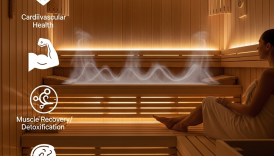ANOREXIA

What Is Anorexia Nervosa? Symptoms, Causes, and Treatment Methods
Anorexia nervosa is a serious eating disorder characterized by an intense fear of gaining weight, a distorted body image, and extreme food restriction that leads to severe weight loss. Even when underweight, individuals with anorexia see themselves as overweight and continuously try to lose more weight. This condition significantly affects both physical and psychological health and can be life-threatening without professional treatment.
Table of Contents
-
What Is Anorexia Nervosa?
-
Common Symptoms of Anorexia
-
Physical and Psychological Signs
-
Causes of Anorexia
-
Who Is Most at Risk?
-
Diagnosis and Evaluation
-
Treatment Options for Anorexia
-
Possible Health Complications
-
Frequently Asked Questions

- ANOREXIA
- Table of Contents
- What Is Anorexia Nervosa?
- Difference Between Anorexia and Loss of Appetite
- Symptoms of Anorexia Nervosa
- Physical Symptoms
- Psychological and Behavioral Symptoms
- Causes of Anorexia Nervosa
- Genetic Factors
- Psychological Factors
- Sociocultural and Environmental Factors
- Stress and Life Events
- Who Is at Risk of Anorexia?
- Age
- Gender
- Occupations and Activities at Risk
- Diagnosis of Anorexia Nervosa
- Specialists Involved
- Diagnostic Criteria (DSM-5)
- Medical and Psychological Evaluation
- Treatment for Anorexia Nervosa
- 1. Nutritional Rehabilitation
- 2. Psychotherapy
- 3. Medication
- Possible Health Complications
- Can You Recover From Anorexia?
What Is Anorexia Nervosa?
Anorexia nervosa is a psychiatric eating disorder where a person restricts their food intake to dangerous levels, often combined with excessive exercise, the misuse of laxatives or diuretics, and other unhealthy behaviors to control their body weight.
People with anorexia are often obsessed with being thin and may feel intense anxiety about eating or gaining weight. The disorder stems from a combination of genetic, psychological, and environmental factors and requires a multidisciplinary treatment approach involving doctors, psychologists, and dietitians.
Difference Between Anorexia and Loss of Appetite
Loss of appetite can occur temporarily due to illness, stress, or digestive problems and doesn’t involve fear of gaining weight. Anorexia nervosa, however, is a chronic mental disorder. The person may feel hungry but deliberately avoids food because of a distorted body image and a pathological fear of gaining weight.
Symptoms of Anorexia Nervosa
Anorexia affects the entire body — physically, mentally, and emotionally. Below are the most common warning signs to look out for:
Physical Symptoms
Physical changes occur as the body reacts to starvation and nutritional deficiencies:
-
Extreme Weight Loss: Noticeable reduction below the normal weight for age and height.
-
Menstrual Irregularities or Amenorrhea: Women may experience absent or irregular menstrual cycles due to malnutrition.
-
Feeling Cold All the Time: Loss of body fat and slowed metabolism lead to increased sensitivity to cold.
-
Hair and Skin Problems: Hair may thin or fall out, while the skin becomes dry, pale, or yellowish.
-
Weak and Brittle Nails: Nails may peel or break easily.
-
Fatigue and Muscle Weakness: The body uses muscle tissue for energy, resulting in muscle loss and constant tiredness.
-
Digestive Issues and Constipation: Slower metabolism and reduced food intake lead to chronic constipation.
-
Low Blood Pressure and Slow Heart Rate: The heart adapts to low energy intake by slowing down.
-
Dizziness or Fainting: Low blood sugar and dehydration can cause lightheadedness or fainting episodes.
-
Lanugo (Fine Body Hair): The body develops thin, soft hair to preserve warmth.
Psychological and Behavioral Symptoms
Anorexia nervosa deeply affects thought patterns and behavior:
-
Distorted Body Image: Believing they are overweight despite being underweight.
-
Intense Fear of Gaining Weight: Persistent, irrational fear of weight gain.
-
Obsessive Food-Related Behavior: Cutting food into tiny pieces, hiding food, refusing to eat, or avoiding entire food groups.
-
Excessive Exercise: Exercising compulsively to burn calories or prevent weight gain.
-
Purging Behaviors: Inducing vomiting or using laxatives/diuretics after meals.
-
Social Withdrawal: Avoiding social gatherings, especially those involving food.
-
Mood Changes: Depression, anxiety, irritability, and emotional instability.
-
Perfectionism and Control Issues: Extreme need for control over self and surroundings.
-
Low Self-Esteem: Feelings of worthlessness or inadequacy.
Causes of Anorexia Nervosa
There is no single cause of anorexia; it develops through the interaction of several biological, psychological, and sociocultural factors.
Genetic Factors
Genetics play a significant role in the risk of developing anorexia. People with a family history of eating disorders, depression, or anxiety are more likely to develop the condition. Some genes may influence brain chemistry and eating behavior.
Psychological Factors
Personality traits such as perfectionism, low self-esteem, and obsessive tendencies increase vulnerability. Anorexia often coexists with other mental health conditions like anxiety disorders, depression, or obsessive-compulsive disorder (OCD).
Sociocultural and Environmental Factors
Media and societal pressure to maintain a thin, idealized body shape can trigger anorexic behavior. Professions or hobbies that emphasize body image — such as modeling, ballet, acting, or gymnastics — pose higher risks.
Stress and Life Events
Traumatic events, bullying, relationship issues, or family conflicts can also contribute to the development of anorexia as a coping mechanism to regain control over one’s life.
Who Is at Risk of Anorexia?
While anorexia nervosa can affect anyone, certain groups face a higher risk:
Age
The disorder typically begins during adolescence or early adulthood (ages 15–25) when individuals experience rapid body changes and increased social pressure. However, it can occasionally develop in younger children or adults later in life.
Gender
Anorexia is 10–20 times more common in women than men. Cultural emphasis on thinness and dieting contributes to this disparity. However, cases among men are increasing, often with a focus on muscularity and fitness.
Occupations and Activities at Risk
Certain careers emphasize physical appearance or low body weight, increasing the risk of anorexia:
-
Models and Fashion Professionals
-
Ballet Dancers and Gymnasts
-
Figure Skaters and Athletes
-
Actors and Performers
These groups often face intense scrutiny over appearance and may develop unhealthy eating habits to meet industry expectations.
Diagnosis of Anorexia Nervosa
Because anorexia is a complex condition, diagnosis requires a comprehensive medical and psychological evaluation conducted by a multidisciplinary team of professionals.
Specialists Involved
-
Psychiatrist: Assesses mental health, prescribes medication if needed.
-
Clinical Psychologist: Provides therapy and evaluates thought patterns.
-
Dietitian: Designs nutritional rehabilitation plans.
-
Physician (Internal Medicine): Monitors overall health and organ function.
Diagnostic Criteria (DSM-5)
According to the Diagnostic and Statistical Manual of Mental Disorders, Fifth Edition (DSM-5), anorexia nervosa is diagnosed based on the following criteria:
-
Significantly Low Body Weight relative to age, sex, and developmental expectations.
-
Intense Fear of Weight Gain or persistent behaviors that interfere with weight restoration.
-
Distorted Body Image — denial of the seriousness of low body weight.
The severity of anorexia is determined by Body Mass Index (BMI) levels: mild, moderate, severe, or extreme.
Medical and Psychological Evaluation
-
Physical Assessment: Weight, blood pressure, heart rate, and temperature measurements.
-
Laboratory Tests: Blood count, electrolytes, liver/kidney function, thyroid hormones, and bone density scans.
-
Psychological Assessment: Structured interviews, family history review, and standardized questionnaires such as the Eating Attitudes Test (EAT).
Treatment for Anorexia Nervosa
Anorexia treatment requires a multidisciplinary approach focusing on both physical recovery and mental healing. The main goal is to restore a healthy weight and normalize eating behaviors.
1. Nutritional Rehabilitation
-
Refeeding Process: Gradual, medically supervised reintroduction of calories to prevent refeeding syndrome.
-
Meal Planning: Dietitians help patients build healthy eating habits, address food fears, and correct misconceptions about nutrition.
2. Psychotherapy
-
Cognitive Behavioral Therapy (CBT): Helps patients identify and change distorted thoughts and behaviors about food and body image.
-
Family-Based Therapy (FBT): Especially effective for adolescents; involves the family in supporting healthy eating and recovery.
-
Supportive Psychotherapy: Improves self-esteem, emotional regulation, and coping mechanisms.
3. Medication
Although no medication specifically cures anorexia, antidepressants or anti-anxiety drugs may help manage co-occurring conditions like depression, OCD, or anxiety.
Possible Health Complications
Untreated anorexia can lead to severe and potentially irreversible health issues, including:
-
Heart failure or arrhythmias
-
Kidney or liver damage
-
Osteoporosis (bone loss)
-
Infertility and hormonal imbalance
-
Electrolyte imbalances
-
Death from organ failure or malnutrition
Can You Recover From Anorexia?
Yes. With the right treatment plan, many people fully recover from anorexia nervosa. Early intervention, consistent therapy, family support, and nutritional guidance significantly increase recovery chances. Healing takes time, but recovery is absolutely possible.





